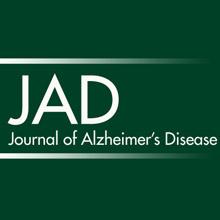 “Alzheimer’s disease (AD) is characterized by progressive cognitive decline and pathologically by the accumulation of amyloid-β (Aβ) and tau hyperphosphorylation causing neurodegeneration and neuroinflammation. Current AD treatments do not stop or reverse the disease progression, highlighting the need for more effective therapeutics.
“Alzheimer’s disease (AD) is characterized by progressive cognitive decline and pathologically by the accumulation of amyloid-β (Aβ) and tau hyperphosphorylation causing neurodegeneration and neuroinflammation. Current AD treatments do not stop or reverse the disease progression, highlighting the need for more effective therapeutics.
The phytocannabinoid cannabidiol (CBD) has demonstrated antioxidant, anti-inflammatory, and neuroprotective properties. Furthermore, chronic CBD treatment (20 mg/kg) reverses social and object recognition memory deficits in the AβPPxPS1 transgenic mouse model with only limited effects on AD-relevant brain pathology.
Importantly, studies have indicated that CBD works in a dose-dependent manner. Thus, this study determined the chronic effects of 50 mg/kg CBD in male AβPPxPS1 mice. 12-month-old mice were treated with 50 mg/kg CBD or vehicle via daily intraperitoneal injections for 3 weeks prior to behavioral testing. A variety of cognitive domains including object and social recognition, spatial and fear-associated memory were evaluated. Pathological brain analyses for AD-relevant markers were conducted using ELISA and western blot.
Vehicle-treated male AβPPxPS1 mice demonstrated impaired social recognition memory and reversal spatial learning. These deficits were restored after CBD treatment. Chronic CBD tended to reduce insoluble Aβ40 levels in the hippocampus of AβPPxPS1 mice but had no effect on neuroinflammation, neurodegeneration, or PPARγ markers in the cortex.
This study demonstrates that therapeutic-like effects of 50 mg/kg CBD on social recognition memory and spatial learning deficits in AβPPxPS1 mice are accompanied by moderate brain region-specific reductions in insoluble Aβ40 levels. The findings emphasize the clinical relevance of CBD treatment in AD; however, the underlying mechanisms involved require further investigation.”
